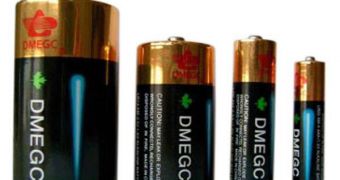At this point, one of the main obstacles preventing the full-scale development and implementation of electric or hybrid vehicles is the prohibitive cost of batteries, as well as their reduced mileage. Potential buyers weigh all these factors in when deciding what type and brand of car to purchase, but experts believe that refining ultracapacitor technology and applying it to batteries could make the choice a lot more simple. Battery packs in electric vehicles could potentially become hundreds or thousands of dollars cheaper than they are today, while also having their sizes cut in half.
A new study from scientists at the University of California in Davis hints at the fact that ultracapacitors may, indeed, be one of the possible roads to the future, when it comes to batteries. They also add that vehicles using microhybrids – small, electric motors – could also benefit from innovation in the field of battery performance and efficacy. Expert Theodore Bohn, from the Argonne National Laboratory's (ANL) Advanced Powertrain Research Facility, believes that recent advancements in capacitor technology have reached a point where the tools can coordinate their interaction with batteries and accurately regulate their power output.
Ultracapacitors are far more efficient than batteries at storing power, and at resisting the test of time. That is partly because they do not rely on chemical reactions for their power output. However, their main disadvantage is that they can usually store lower amounts of electricity inside than average batteries (at times even an order of magnitude less). Therefore, Bohn adds, combining the best of both worlds may prove to be the way to go. He explains that the capacitors could easily protect battery packs from surges of electricity that otherwise damage them, reducing their life span, Technology Review reports.
According to the expert's initial calculations, reducing the size of hybrid or plug-in vehicles' batteries by as little as 25 percent could save in the vicinity of $2,500 for each vehicle. Calculating in the costs of the capacitors, which can be between $500 and $1,000, people would still get at least $1,500 in cost reduction. Additionally, capacitors could also make batteries hold more current, as there is typically a trade-off between charging speed and the amount of electricity each pack can hold. With capacitors, the output would be steady, and the batteries' internal workings made to store more electricity.

 14 DAY TRIAL //
14 DAY TRIAL //